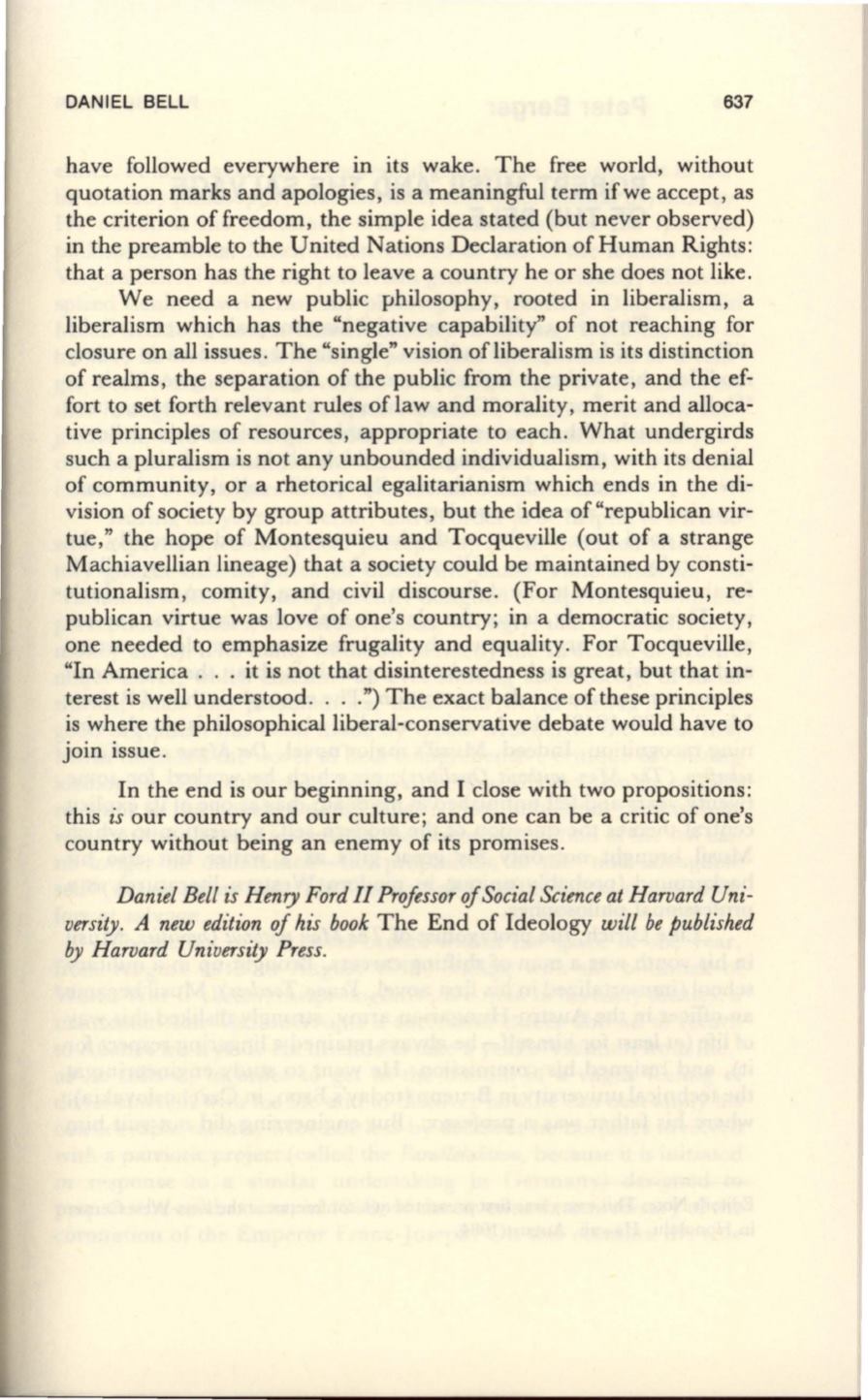
DANIEL BELL
637
have followed everywhere in its wake. The free world, without
quotation marks and apologies, is a meaningful term if we accept, as
the criterion of freedom, the simple idea stated (but never observed)
in the preamble to the United Nations Declaration of Human Rights:
that a person has the right to leave a country he or she does not like.
We need a new public philosophy, rooted in liberalism, a
liberalism which has the "negative capability" of not reaching for
closure on all issues. The "single" vision of liberalism is its distinction
of realms, the separation of the public from the private, and the ef–
fort to set forth relevant rules of law and morality, merit and alloca–
tive principles of resources, appropriate to each. What undergirds
such a pluralism is not any unbounded individualism, with its denial
of community, or a rhetorical egalitarianism which ends in the di–
vision of society by group attributes, but the idea of "republican vir–
tue," the hope of Montesquieu and Tocqueville (out of a strange
Machiavellian lineage) that a society could be maintained by consti–
tutionalism, comity, and civil discourse. (For Montesquieu, re–
publican virtue was love of one's country; in a democratic society,
one needed to emphasize frugality and equality. For Tocqueville,
"In America ... it is not that disinterestedness is great, but that in–
terest is well understood....") The exact balance of these principles
is where the philosophical liberal-conservative debate would have to
JOlll ISSUe.
In the end is our beginning, and I close with two propositions:
this
is
our country and our culture; and one can be a critic of one's
country without being an enemy of its promises .
Daniel Bell is Henry Ford II Professor
of
Social Science at Harvard Uni–
versity. A new edition of his book
The End of Ideology
will be published
by Harvard University Press.


